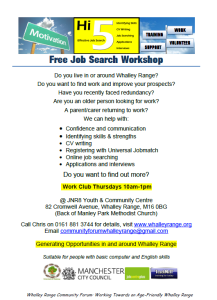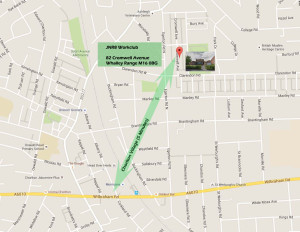Older people need more respect in the media
25 November 2015
Roy Jones
There is a golden rule for those reporting on older people and issues: ask yourself whether words such as old, elderly or aged are appropriate. If they are not necessary or relevant to the story, don’t include them.
In the past, older people were treated somewhat patronisingly by the media, “reaching for their slippers”, for example, but generally in a kindly way. Nowadays, the following comment is more typical:
“The young tax-paying population has to fund, to its detriment, an ageing society.” – newspaper comment.
However, roughly 12 million older people are central, some say critically so, to Britain’s economy and their needs and responsibilities are subject to close media scrutiny and the vagaries of government.
Change the record: NUJ guidelines on reporting age state:
“Language can be a powerful tool in shaping our views and reflecting public attitudes and perceptions – both of which can form barriers that prevent people of every age from integration and participation in society. The NUJ has always urged journalists to avoid sensationalising issues in ways that cause offence or encourage discrimination.”
The British Medical Journal (BMJ, 12 February 2005) has pointed out that, despite the evidence [that over 65s are the safest drivers], many European governments have passed restrictive laws on elderly drivers and asks: “Might it be that a negative image of elderly drivers in the media could be an important part of shaping public and medical opinion?”
People reaching 60 or 65 do not automatically take on the characteristics of old age. Although such a diverse group is difficult to stereotype, the media manages to do so.
From change the record: NUJ guidelines on reporting age:
“‘Old’ itself is loaded with assumptions of neediness and ineptness that terrify the young and undermine the old, robbing them of self respect, damaging their health and welfare. Terms such as ‘granny’ and ‘pensioner’ encourage negative stereotypes.”
The use of ‘old’ is a trap for the unwary. There are 500 words or phrases defining old, about 10 are complimentary while the rest are derogatory and many – as in ‘old maid’ – doubly insulting.
Older people are not an amorphous mass but millions of individuals with different backgrounds, wealth, health, and demeanours, so that when one person is, or a group of older people, are the subject of a news story or feature remember – pensioners receive pensions, veterans have grown old in a profession. Adding a person’s age, Roy Jones, 62, is factual and probably relevant, although frowned upon by some.
There is no accepted catch-all word for the 60+ age group but ‘older people’ has become the most used and covers a very diverse grouping. Words such as old, aged, pensioner or aged 70 – throw no light on the subject.
They encompass every part of life’s rich pageant; men and women, rich and poor, dull and clever, fit and unfit, Tory and Labour and every other political hue, bankers, trades people, labourers, astronauts, middle, working and the ruling classes, public school educated and the uneducated. One-third of grandparents work and half pay taxes. All of the them do some or all of the following: tend to their own families; care for young and old; contribute to their communities in various ways; fill theatres and cinemas, read books and newspapers, listen to and watch current affairs and news programmes and join phone-ins. Journalists would do well to take time to discover what they do and give the rounded picture of them they deserve.
Politicians and the media claim daily that the country can’t afford the older generation and, having escaped the austerity cuts endured by the rest of the population, should lose benefits such as free bus travel, winter fuel allowance, free prescriptions and TV licences. In fact, the young are paying for the old now and in the future, they claim.
However, in 2010 a survey by the Women’s Royal Voluntary Service Gold Age Pensioners showed that every year pensioners contributed more to the economy than they received in pensions, care and benefits: “In 2010, over 65s made an astonishing net contribution of £40 billion to the UK economy through, amongst other contributions, taxes, spending power, provision of social care and the value of their volunteering.”
“Older people are the glue that hold our society together.” – Age UK spokesperson
The benefits group, Pension 100, has pointed out that: “The [OAP Act 1908] level of benefit was deliberately set low to encourage workers to also make their own provision for retirement. The Act provided five shillings (7s 6d for married couples) a week for those over 70 whose annual means did not exceed £31.50.”
The old have “generous pensions” – ITV reporter
Today Britain’s basic pension is worth 18 per cent of the average male earnings, compared with 60 per cent in many other European countries. One in five older people now live below the poverty line, the majority being women. Is this generous?
Britain’s basic pension is inadequate, leaving some without choice, opportunity and quality of life and reliant on benefits that are now under attack.
It time for older people in the UK to be given more respect by the various media outlets and – importantly – by politicians. An adequate rate of pension would be a start, but attitudes have to change to reflect the very real contribution to society made by people of all ages.
Read more here:



